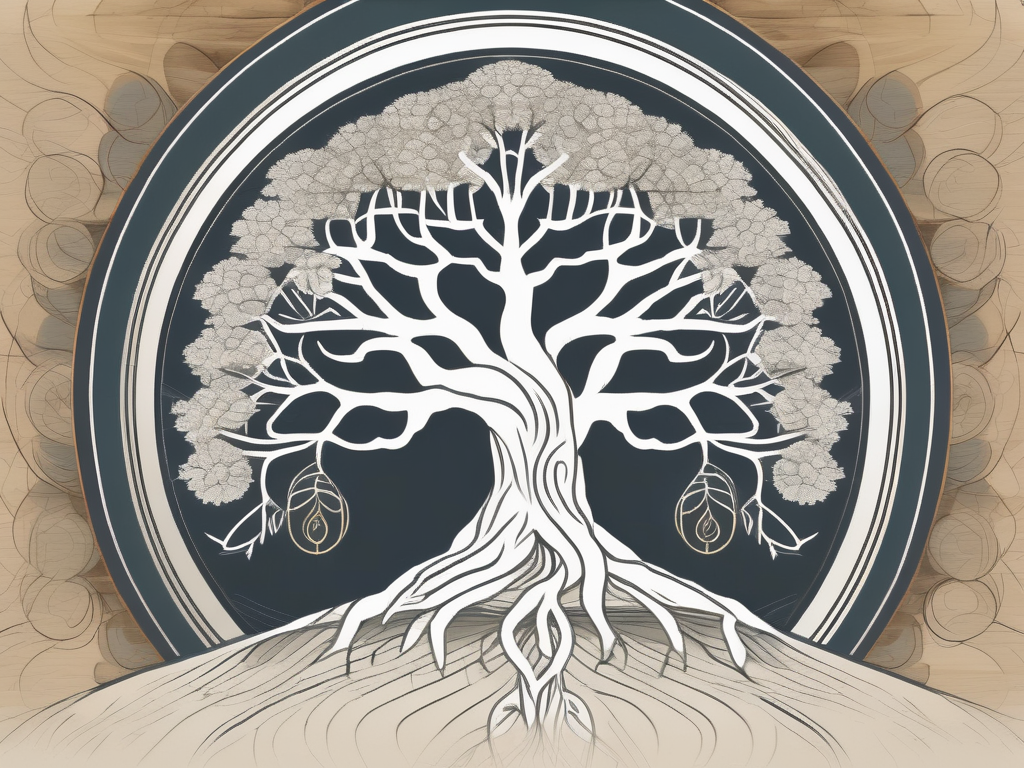Are you tired of rigid belief systems? Do you seek a spiritual path that encourages open-mindedness and personal exploration? If so, then exploring Buddhism without beliefs might just be the journey you’re looking for. In this article, we’ll delve into the world of non-dogmatic spirituality within Buddhism and discover the core principles that guide this path. Join me as we embark on this fascinating adventure.
Understanding Non-Dogmatic Spirituality
Before we dive deeper, let’s first define what non-dogmatic spirituality is all about. Unlike traditional religious practices, non-dogmatic spirituality emphasizes personal freedom and individual interpretation. It encourages practitioners to question, explore, and develop their own understanding of spirituality, free from rigid doctrine.
In the context of Buddhism, non-dogmatic spirituality means approaching the teachings of the Buddha with an open mind, without blindly accepting beliefs or relying solely on dogma. It allows for a flexible interpretation of Buddhist principles and encourages practitioners to integrate these principles into their own unique journey.
Defining Non-Dogmatic Spirituality
In non-dogmatic spirituality, there’s no single set of beliefs or practices to follow. Instead, it’s about exploring and discovering what resonates with you personally. It’s about finding your own path within the broader framework of Buddhism, while respecting the teachings of the Buddha.
This journey involves engaging with the core principles of Buddhism, understanding their significance, and applying them in a way that aligns with your own experiences and understanding.
For example, one aspect of non-dogmatic spirituality is the idea of mindfulness. Mindfulness is a practice that involves being fully present in the moment, observing one’s thoughts and emotions without judgment. It is often associated with meditation, but it can also be integrated into everyday activities such as eating, walking, or even washing dishes. By cultivating mindfulness, practitioners can develop a deeper awareness of their own thoughts and emotions, leading to greater clarity and insight.
Another aspect of non-dogmatic spirituality is the concept of compassion. Compassion is the ability to empathize with others and show kindness and understanding. In Buddhism, compassion is seen as a fundamental virtue and is often cultivated through practices such as loving-kindness meditation. By cultivating compassion, practitioners can develop a greater sense of connection with others and a deeper understanding of the interconnectedness of all beings.
The Role of Non-Dogmatic Spirituality in Buddhism
Non-dogmatic spirituality plays a crucial role in Buddhism by fostering a sense of openness and adaptability. It allows for the evolution of the teachings and the integration of contemporary knowledge and perspectives.
By embracing non-dogmatic spirituality, practitioners can explore Buddhism in a way that is relevant to their lives and the modern world. It empowers individuals to engage with the teachings, question their assumptions, and develop a deep understanding that resonates with their own unique experiences.
One way in which non-dogmatic spirituality is expressed in Buddhism is through the concept of impermanence. Impermanence is the understanding that all things are constantly changing and that nothing is permanent or fixed. This concept encourages practitioners to let go of attachments and expectations, allowing them to embrace the ever-changing nature of life. By embracing impermanence, practitioners can develop a greater sense of acceptance and peace.
Another way in which non-dogmatic spirituality is expressed in Buddhism is through the concept of interdependence. Interdependence is the understanding that all things are interconnected and that our actions have consequences not only for ourselves but for others and the world around us. This concept encourages practitioners to cultivate a sense of responsibility and to act in ways that promote harmony and well-being for all beings. By embracing interdependence, practitioners can develop a greater sense of compassion and interconnectedness.
In conclusion, non-dogmatic spirituality in Buddhism is about embracing personal freedom, individual interpretation, and an open mind. It allows practitioners to explore and discover their own unique path within the broader framework of Buddhism, while respecting the teachings of the Buddha. By engaging with the core principles of Buddhism and integrating them into their own lives, practitioners can develop a deep understanding that resonates with their own experiences and promotes personal growth and well-being.
The Core Principles of Buddhism
As we venture further into the realms of Buddhism without beliefs, it’s essential to grasp the core principles that underpin this spiritual path. These principles serve as guiding lights, illuminating the way as we navigate our spiritual journey.
Buddhism, a philosophy and spiritual tradition that originated in ancient India, offers profound insights into the nature of existence and the human condition. It provides a framework for understanding suffering and offers a path towards liberation.
The Four Noble Truths lie at the heart of Buddhist teachings. They point to the reality of suffering (Dukkha), its causes (Samudaya), its cessation (Nirodha), and the path to its cessation (Magga). This framework provides a profound understanding of the nature of existence and offers a roadmap for liberation from suffering.
When we explore these truths without accepting them as absolute truths, we open ourselves to a deeper understanding of our own experiences of suffering. We can contemplate their meaning, delve into our own struggles, and find ways to navigate towards our own liberation.
The Eightfold Path acts as a practical guide for living a meaningful life and finding liberation. It encompasses eight interconnected practices: Right View, Right Intent, Right Speech, Right Action, Right Livelihood, Right Effort, Right Mindfulness, and Right Concentration.
These principles provide a comprehensive framework for ethical conduct, mental development, and wisdom. They encourage us to cultivate mindfulness, compassion, and wisdom in our daily lives.
Non-dogmatic spirituality allows us to tailor the Eightfold Path to our own individual circumstances and needs. We can adapt it to suit our modern lives, interpreting and applying these principles in ways that align with our own values and experiences.
By embracing the core principles of Buddhism, we embark on a transformative journey of self-discovery and spiritual growth. We learn to cultivate inner peace, develop a compassionate heart, and find liberation from the cycle of suffering.
Throughout history, countless individuals have found solace and wisdom in the teachings of Buddhism. From ancient sages to modern practitioners, the principles of Buddhism continue to inspire and guide people from all walks of life.
As we delve deeper into the core principles of Buddhism, we uncover profound insights into the nature of reality, the impermanence of all things, and the interconnectedness of all beings. These teachings invite us to embrace a holistic view of life and to cultivate a sense of interconnectedness with the world around us.
Through meditation, contemplation, and the application of Buddhist principles in our daily lives, we can embark on a transformative journey towards self-discovery, inner peace, and spiritual awakening.
Buddhism Without Beliefs: An Overview
With a foundational understanding of non-dogmatic spirituality, let’s explore Buddhism without beliefs in more detail. This approach to Buddhism encourages practitioners to embrace uncertainty and question deeply-held beliefs.
In Buddhism without beliefs, the emphasis is on personal experience and direct observation. It is a path that encourages individuals to explore the nature of reality and the human condition through their own insights and understanding.
The concept of agnosticism in Buddhism takes on a broader meaning. While traditionally associated with questions about the existence of God, in Buddhism without beliefs, agnosticism invites us to approach the nature of reality with an open mind, acknowledging that there might be limits to our understanding.
Non-dogmatic spirituality allows us to explore the vastness of existence without clinging to rigid ideas or chasing absolute truths. It encourages curiosity and a willingness to question, inviting us to embrace the mystery of life.
When we approach Buddhism without beliefs, we are free to engage in a deep and personal exploration of the teachings. We can examine the Buddha’s teachings, the Four Noble Truths, and the Eightfold Path, not as dogmas to be blindly followed, but as frameworks for understanding and personal growth.
The Practice of Mindfulness and Meditation
Mindfulness and meditation find a central place in Buddhism without beliefs. These practices cultivate present-moment awareness and allow us to connect with our inner selves and the world around us.
As non-dogmatic practitioners, we can approach mindfulness and meditation as tools for exploration, rather than as rituals to be followed blindly. We can experiment with various techniques, explore our own experiences, and adapt these practices to suit our unique needs.
Mindfulness invites us to pay attention to our thoughts, emotions, and sensations without judgment or attachment. Through this practice, we can develop a deeper understanding of ourselves and the nature of our own minds.
Meditation, on the other hand, provides a space for stillness and introspection. It allows us to observe the ever-changing nature of our thoughts and emotions, cultivating a sense of peace and equanimity.
By integrating mindfulness and meditation into our daily lives, we can develop a greater sense of clarity, compassion, and wisdom. These practices can help us navigate the challenges of life with greater ease and cultivate a deeper connection to ourselves and others.
In Buddhism without beliefs, the journey is not about reaching a final destination or attaining a fixed set of beliefs. It is a continuous exploration, an ongoing process of self-discovery and growth.
As we embrace the uncertainty and open ourselves to the possibilities of the unknown, we can find a profound sense of freedom and liberation. Buddhism without beliefs invites us to embark on a journey of self-transformation, where the path itself becomes the destination.
The Intersection of Buddhism and Secularism
Now, let’s turn our attention to the fascinating intersection of Buddhism and secularism. As our societies become increasingly diverse and pluralistic, many practitioners find themselves seeking ways to integrate their spiritual beliefs into a secular context.
In this exploration of the intersection between Buddhism and secularism, we delve into the rich tapestry of ideas and practices that emerge when these two worlds collide. It is a meeting of ancient wisdom and modern sensibilities, where the timeless teachings of the Buddha find new relevance in the complexities of today’s world.
Secular Buddhism: A Brief Introduction
Secular Buddhism is an approach that aims to separate the essential teachings of the Buddha from cultural and religious baggage. It emphasizes the practical aspects of Buddhism, focusing on mindfulness, ethical living, and the pursuit of wisdom.
Within the realm of secular Buddhism, practitioners are encouraged to explore the teachings of the Buddha in a way that aligns with their own personal beliefs and values. It is a path that transcends traditional boundaries, allowing individuals to integrate Buddhist principles into their lives without the need for adherence to specific religious dogmas.
By stripping away the layers of cultural and religious context, secular Buddhism offers a universal framework that resonates with a secular worldview. It provides a space for individuals to engage with Buddhist teachings on their own terms, free from the constraints of traditional religious structures.
The Relevance of Buddhism in the Secular World
In a world marked by stress, uncertainty, and materialism, Buddhism without beliefs offers profound insights and practices that can help individuals navigate their lives with greater wisdom and well-being.
At its core, Buddhism addresses the fundamental human condition, offering guidance on how to alleviate suffering and find lasting happiness. In a secular context, these teachings take on a new dimension, offering practical tools for individuals to cultivate resilience, find inner peace, and foster a harmonious relationship with themselves, others, and the natural world.
Mindfulness, a key aspect of secular Buddhism, has gained widespread recognition as a powerful tool for managing stress and promoting mental well-being. By cultivating present-moment awareness, individuals can develop a deeper understanding of their own thoughts, emotions, and experiences, leading to greater clarity and a sense of inner calm.
Compassion, another central theme in Buddhism, offers a powerful antidote to the individualism and self-centeredness that often pervade modern society. By cultivating empathy and kindness towards others, individuals can foster a sense of interconnectedness and build more compassionate communities.
Self-inquiry, a practice encouraged in secular Buddhism, invites individuals to explore the nature of their own existence and question deeply ingrained beliefs and assumptions. This process of introspection and inquiry can lead to profound personal growth and transformation.
As the world continues to evolve and change, the intersection of Buddhism and secularism offers a space for individuals to explore the timeless wisdom of the Buddha in a way that is relevant and meaningful to their lives. It is a meeting point where ancient traditions and modern sensibilities converge, offering a path towards greater well-being, wisdom, and understanding.
The Journey into Non-Dogmatic Spirituality
As we near the end of our exploration, let’s reflect on the profound journey into non-dogmatic spirituality and the importance of embracing uncertainty.
Embracing Uncertainty in Spirituality
In non-dogmatic spirituality, uncertainty becomes a catalyst for growth and exploration. It liberates us from the confines of rigid beliefs and invites us to engage with spirituality in a dynamic and ever-evolving way.
By embracing uncertainty, we open ourselves to new perspectives, insights, and experiences. This willingness to venture into the unknown nourishes our spiritual growth and allows us to cultivate a deep and authentic spirituality that resonates with our individuality.
The Role of Personal Experience in Non-Dogmatic Spirituality
In non-dogmatic spirituality, personal experience serves as a valuable compass. It is through our own direct experiences that we can truly understand the depth and relevance of spiritual teachings.
As we embark on this journey, we are encouraged to turn inward, explore our own minds, and reflect on our experiences. By doing so, we can integrate spiritual principles into our lives in a way that feels genuine and transformative.
In conclusion, exploring Buddhism without beliefs opens up a world of possibilities for spiritual seekers seeking a path of personal discovery and growth. It encourages us to question, embrace uncertainty, and engage with the teachings of Buddhism in a way that resonates with our own unique experiences. By embarking on this journey, we embark on a profound exploration of our inner selves, cultivating wisdom, compassion, and an authentic spirituality that enriches every aspect of our lives.












